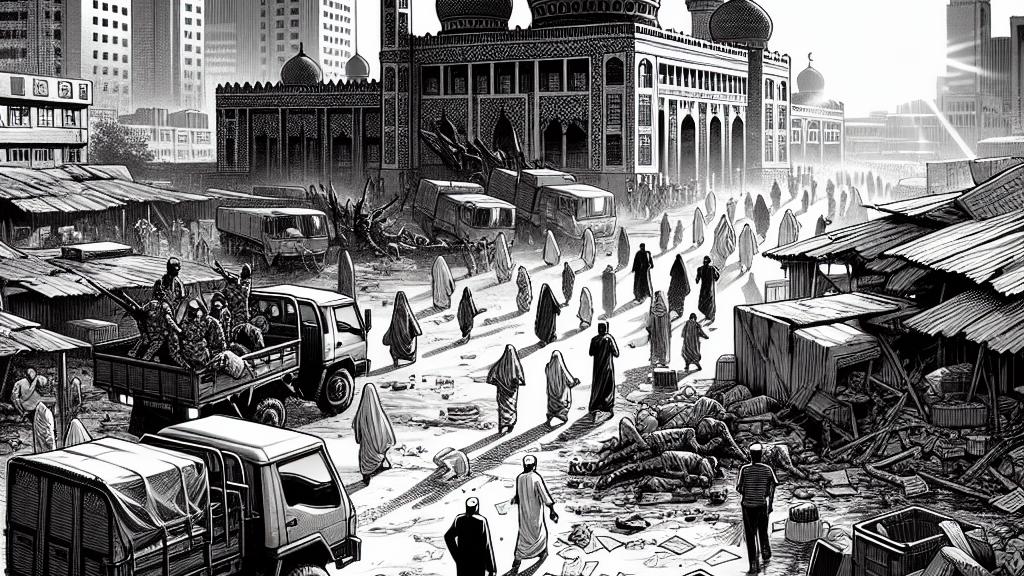Military Base Attack in Bamako, Mali: A Growing Concern
Overview
- A dramatic and violent attack on a military base in Bamako has sent shockwaves through Mali.
- For over a decade, Mali has faced a relentless Islamist insurgency that has only intensified over time.
- Despite ongoing military interventions, the security situation remains alarmingly critical, with civilians often caught in the crossfire.

A Bold Assault on Bamako
In the early hours of Tuesday, Bamako, the capital city of Mali, experienced an unsettling and bold attack that rattled residents. Armed insurgents struck a military gendarmerie school, causing chaos as gunfire echoed around the area at approximately 5:30 AM. Eyewitness accounts described the panic among locals, many of whom were on their way to early morning prayers at nearby mosques. State television quickly labeled the attackers as 'terrorists,' emphasizing the serious impasse that Mali faces. Although authorities managed to regain control relatively swiftly, the haunting fear left in the wake of such violence reveals the fragile state of security in a nation besieged by extremist threats.
A Pattern of Escalating Violence
This assault is not an isolated event; rather, it is emblematic of a disturbing trend reflecting the worsening security conditions across Mali. Just days prior, a horrific ambush in the village of Djiguibombo claimed the lives of about 40 villagers, shattered as armed men attacked during a wedding celebration. The attackers surrounded the festivities, leading to utter panic and despair, demonstrating the ruthlessness of jihadist groups linked to al-Qaeda and ISIS that have grown bolder. As these incidents become more frequent, they raise urgent concerns about the Malian government’s ability to safeguard its people and restore order in a country where violence has become the norm rather than the exception.
Wider Implications for Sahel Stability
Mali's ongoing battle against insurgency extends its impact far beyond its borders, threatening regional stability in the entire Sahel region. Neighboring countries like Burkina Faso and Niger find themselves entrenched in similar conflicts, creating a pervasive crisis that has led to mass displacement and humanitarian challenges. The response from the international community, primarily focused on military intervention, often fails to tackle the root causes of such violence, including pervasive poverty, lack of education, and weak governance. To forge a path towards lasting peace, it is crucial that strategies evolve to include economic development and community-focused initiatives that build resilience against extremist ideologies. By addressing these fundamental issues, Mali can hope to break this vicious cycle of violence while fostering a more secure and stable future for its citizens.

Loading...